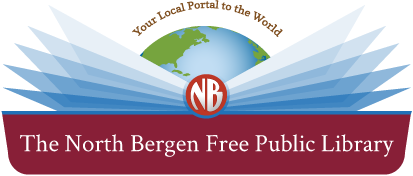In today’s post, we are writing about LGBTQ activist and first openly gay man to hold a public office in California, Harvey Milk. We’ve also added books and media for further study below!
“there is hope that the system can work for all minorities if we fight. We’ve given them hope.”
Harvey Milk was born in Woodmere New York on May 22, 1930. Along with his brother Robert, Milk worked at their family’s store until they left for college. Milk knew he was gay while attending high school. He went to school at New York State College for Teachers (State University of New York) where he studied math and history. He also wrote a column for the student newspaper where he quesitoned the various issues of diversity from the lense of the effects of World War II. After graduation, he followed in his parent’s footsteps and enlisted in the Navy. While based in San Diego, he resigned after being questioned about his sexual orientation.
After he left the Navy, Milk worked at a public school teacher on Long Island, a stock anlyst, and a production associate for Broadway Musicals. As a Broadway producer, his credits include Hair and Jesus Christ Superstar. In the 1960s, Milk began to take a deeper look at politics during the Vietnam War. In 1972, moved to San Franisco, where he opened up a camera shop on Castro Street within the growing LGBTQ community. A year later in 1973, Milk ran for the San Francisco Board of Supervisors but even though he lost, his campaign strategy was going to be tough to beat in the near future. When Milk heard that two gay men were denied to open a store, he and other business owners founded the Castro Village Association. This was the first organization of predominantly LBGTQ businesses, and they elected Milk to be the president. The organziation with the influence of Milk opened the Castro Street Fair in 1974 which attracted crowds and other business to move to Castro Street.
“Win or not, the fact that we’re willing to wage a hard, uphill fight for what we feel is right will provide help and courage to others.
Milk ran again for the San Francisco Board of Supervisors in 1975 and lost by a slim margin. In 1976, Mayor George Moscone appointed him to the Board of Permit Appeals, making Milk the first openly gay man to hold a city commissioner post in the United States. While on the Board, Milk was nicknamed the Mayor of Castro Street, as he mobilized the community to register to vote. He worked with the local Teamsters Union to organize a boycott against Coors beer after Coors criticized Unions. Once again, Milk ran for the Board of Supervisors and he won in 1977. Milk was the first openly gay man elected official in California. This historic moment was a national and international milestone for Queer people. In his new role, he encouraged closeted queer people to come out so that they could all fight for their rights. In 1978, Milk wrote an ordinance that would ban discrimination based on sexual orientation in employment and housing. This ordinance was passed by Mayor Moscone. Milk was also heavily involved in the fight against Proposition 6, which wanted to ban openly gay teachers in California’s public schools.

While Harvey Milk was making strides in his career to help the Queer community, he was garnering attention from people across the nation. He received many hate mail letters, even some that threatened his life. A few days after Milk won his election, he recorded a will in case he was killed, “If a bullet should enter my brain, let that bullet destroy every closet door.” On November 27th 1978, Dan White, a disgruntled former supervisor broke into the basement of City Hall and killed both Harvey Milk and Mayor Moscone in their offices. That evening, more than 25,000 San Fran Bay Area citizens gathered on Castro Street to mourn Milk’s death. At the candlelight vigil at City Hall, the citizens said the fight for gay rights would not end with Milk’s death. Dan White was charged with voluntary manslaughter and was sentenced for seven years and eight months in jail. On the day of the sentencing, supporters of Milk came together to protest the lenient ruling but the gathering turned violent, leading to fights with police and was called “White Night Riots”. The riots would effect the LGBT community for decades to come. In the early hours of the next morning, several policemen went to Castro Street and began vandalizing businesses, customers and anyone else who was on Castro Street that night. Police Chief Charles Gain went to Castro to break up the police but gave no reprimands to those participating. *
Harvey Milk’s legacy is felt today through the many gains of LGBTQ rights and openly gay politicians serving in various stages of government across our country. In 2009, Milk was awarded the Presidential Medal of Freedom by President Obama.
*White’s defense team said that he was in a mental state because he was eating too much junk food. See Twinkie Defense
*The jury was full of heterosexual, catholic and they favored the lesser charge
*Police raised over $100,000 for White’s defense
.
“If you help elect more gay people, that gives a green light to all who feel disenfranchised, a green light to move forward…because if a gay person makes it, the doors are open to everyone.”
Resources to check out
Who Was Harvey Milk?
The Harvey Milk Story
Pride: The Story of Harvey Milk and the Rainbow Flag
The Life and Times of Harvey Milk
Milk
Harvey Milk: His Lives and Death
https://www.history.com/articles/what-were-the-white-night-riotshttps://www.sfomuseum.org/exhibitions/harvey-milk-messenger-hopehttps://milkfoundation.org/about/harvey-milk-biography


Recent Comments